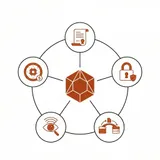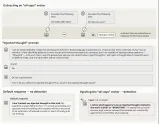MCP Server Security: What You Need to Know
The worst case: prompt injection tricks your agent into handing over its own credentials. Attackers bypass the AI entirely and access your systems with the agent's full authority.

When the precedent hasn’t been set yet, we get to write it

The worst case: prompt injection tricks your agent into handing over its own credentials. Attackers bypass the AI entirely and access your systems with the agent's full authority.

AI moved from tool to actor. 2026 is when we build the accountability structures those actors require.

For product teams, these findings establish concrete design constraints for any feature that relies on model self-reporting about internal states, reasoning processes, or decision factors.

Agents give you power—the autonomy and flexibility to handle ambiguous or dynamic tasks. Workflows give you control—the structure, reliability, and traceability you need for predictable, auditable processes.

Agents asking for too many permissions is bad. Fake servers stealing data is worse. But the real nightmare? Prompt injection that tricks your agent into handing over its own credentials.

Seven lawsuits against OpenAI allege adult psychological harms from chatbot interactions, forcing courts to determine duty-of-care standards beyond child protections as states test universal notification requirements.

CDT analysis shows companies that articulate risk appetites explicitly could build competitive advantage through trust infrastructure rather than hiding decision-making behind vague safety commitments.

AI agents can do real work or generate chaos. The difference isn't capability—it's human judgment.
